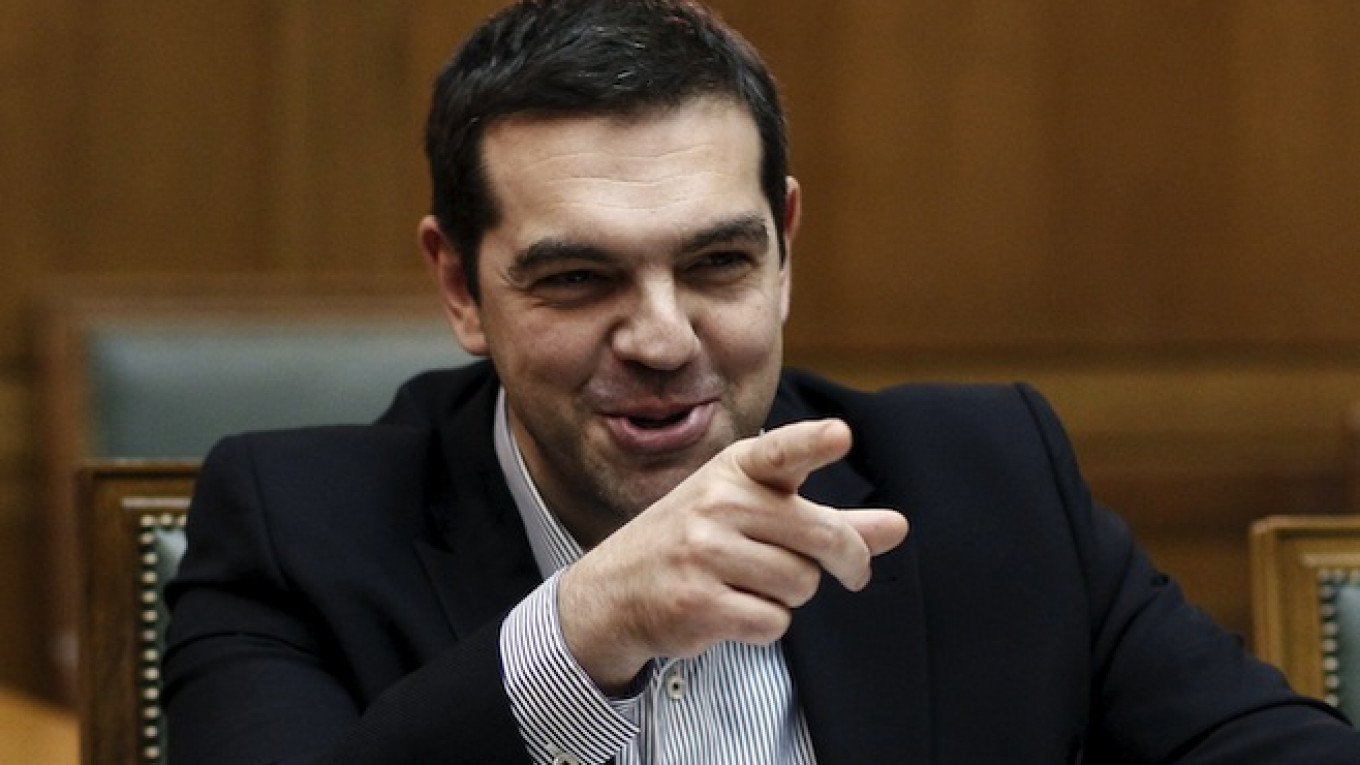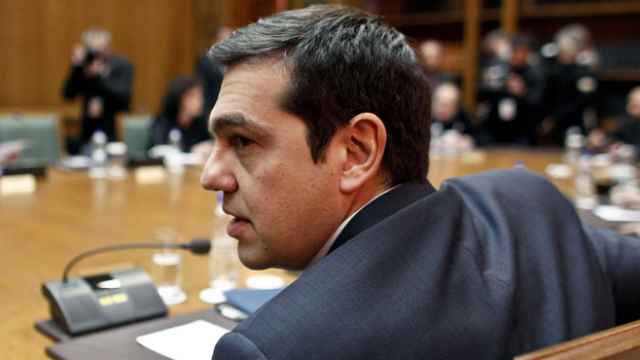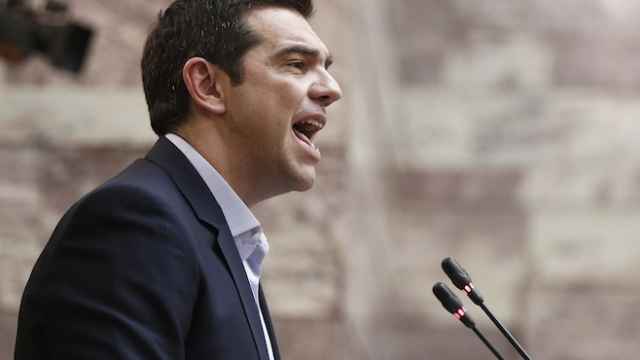Russian President Vladimir Putin and Greek Prime Minister Alexis Tsipras plan to discuss economic ties and the European Union's sanctions against Moscow when they meet for talks next week, a Kremlin spokesman said Friday.
Russia wants the EU to lift the sanctions imposed over Moscow's role in the turmoil in Ukraine and hopes to get support from some EU member states, notably Hungary and Greece.
The Kremlin spokesman, Dmitry Peskov, said it was too early to talk about any possibility of Moscow providing financial help to the cash-strapped Greece before the talks.
"Relations between Moscow and the European Union will be discussed in the light of Brussels's policy of sanctions and Athens' quite cold attitude to this policy," Peskov said.
Greece's new left-wing government has said it will not seek aid from Moscow but has so far failed to reach a deal with its EU/IMF creditors to unlock fresh funds.
Putin and Tsipras will meet in Moscow on Apr. 8. It will be Tsipras' first visit to the Russian capital after his leftist Syriza party swept to victory in a snap election in January.
Tsipras visited Moscow in May, 2014, and attended a conference on ties between Russia and Greece, as well as being received by senior Russian state officials. Five other members of the Greek delegation now also hold senior government roles in Athens.
A Message from The Moscow Times:
Dear readers,
We are facing unprecedented challenges. Russia's Prosecutor General's Office has designated The Moscow Times as an "undesirable" organization, criminalizing our work and putting our staff at risk of prosecution. This follows our earlier unjust labeling as a "foreign agent."
These actions are direct attempts to silence independent journalism in Russia. The authorities claim our work "discredits the decisions of the Russian leadership." We see things differently: we strive to provide accurate, unbiased reporting on Russia.
We, the journalists of The Moscow Times, refuse to be silenced. But to continue our work, we need your help.
Your support, no matter how small, makes a world of difference. If you can, please support us monthly starting from just $2. It's quick to set up, and every contribution makes a significant impact.
By supporting The Moscow Times, you're defending open, independent journalism in the face of repression. Thank you for standing with us.
Remind me later.






